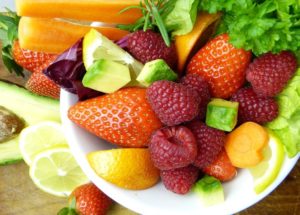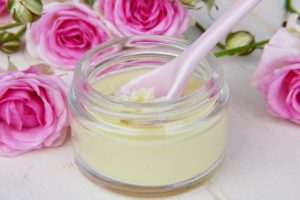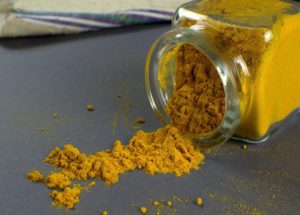Why Turmeric Tea Is Beneficial?
Turmeric is a popular spice made from the Curcuma longa plant’s rhizome or root.
Turmeric is a native of Southeast Asia and is a member of the Zingiberaceae or ginger family. It has been used in Indian Ayurvedic and Chinese medicine as a herbal remedy for thousands of years. India is growing 78% of the world’s turmeric supply.
Turmeric Tea Facts:
- Turmeric’s active ingredient is curcumin.
- Curcumin gives a characteristic yellow color to the turmeric.
- The anti-inflammatory and immune – boosting properties of curcumin have been proven.
What Does Turmeric Tea Mean?
Curcumin has low bioavailability, meaning that it is difficult for the body to access and absorb the compound. Therefore, turmeric supplements are popular with their guaranteed high curcumin concentrations. Brewed with grated turmeric root or pure powder, turmeric tea is considered one of the most effective ways of consuming spice.
There is no specific daily recommended intake of turmeric. The suggested daily intake depends largely on the condition that it is used to treat, based on available research. The majority of adult research supports the safe use of 400 to 600 milligrams (mg) of pure turmeric powder three times a day, or 1 to 3 grams (g) of grated or dried turmeric root daily. The best way to ensure a pure product is to grind the turmeric yourself
Benefits Of Turmeric Tea:
It is believed that drinking turmeric tea will bring several benefits, Some of them are further described here.
1. Reduces symptoms of arthritis.
Curcumin can help reduce the most prominent symptoms of arthritis as an anti-inflammatory. A study in 2017 showed that 63 percent of 206 American adults with auto-reported Arthritis used non-vitamin supplements to manage their symptoms, with turmeric the most frequently used product.
2. Assists in treating and managing lung conditions
Researchers suspect that curcumin can reduce symptoms of chronic or long-term lung conditions through its anti-inflammatory and antioxidant properties.
A medical review in 2017 found that although there is limited clinical evidence for asthma, cystic and pulmonary fibrosis, lung cancer or injury and chronic pulmonary obstructive disease (COPD) treatment, curcumin may be helpful.
3. Helps with diabetes prevention and management
For thousands of years, traditional medicines have been using turmeric for diabetes. Several studies using animal and human models have shown that supplementation with curcumin may have the properties of anti-diabetes.
4. Protects from damage to the liver, gallstones, and manages liver conditions.
A number of studies have demonstrated that curcumin protects against liver damage. Curcumin’s potential benefits include increased digestive fluid bile production while protecting the liver cells against damage from bile – related chemicals.
5. Assistance in managing IBS or irritable bowel syndrome
Curcumin has long been used as a treatment for many digestive conditions in traditional medicines. Several studies have found that curcumin can help reduce IBS-related pain and improve the quality of life with the condition of those people.
A 2012 rat study found that curcumin helped reduce the time it took for food to empty the small intestine from the stomach, otherwise known as gastric emptying.
6. Aid for cancer prevention and treatment
Curcumin’s anti-cancer action is one of the most clinically established therapeutic properties. Curcumin is thought to reduce the risk of damage to cells in the body as an antioxidant and anti-inflammatory, reducing the risk of cell mutations and cancer.
In addition, numerous studies have demonstrated that curcumin has anti-tumor properties that limit tumor growth and cancer cell spread. More than 2,000 articles have been published using the keywords “curcumin” and “cancer,” according to a medical review in 2014.
Curcumin is being used as a cancer treatment along with chemotherapy and radiation therapy.
7. Help reduce complications of the cardiovascular system
Several studies have shown that curcumin has beneficial cardiac health properties by acting as an antioxidant and anti-inflammatory.
A 2012 study found that taking 4 g of curcumin per day three days before and five days after surgery to graft coronary artery bypass reduced the risk of acute myocardial infarction or heart attack by 17 %.
2. Strengthens immune function
Curcumin with antioxidant, anti-inflammatory, antiviral, and antibacterial properties has been shown to improve immune function. It has also been shown that curcumin acts as an immune modulator to help regulate the functioning of immune cells against cancer.
Recipe For Turmeric Tea
It is possible to prepare turmeric tea either from pure turmeric powder or from grated or ground, dried turmeric. Higher concentrations of biologically available or absorbable curcumin are claimed by fermented turmeric preparations, commonly sold as tea products.
For turmeric tea, the steps to follow are:
- Boil four cups of water
- Add one to two teaspoons of ground, grated, or fine turmeric
- Allow the mixture to simmer for about ten minutes
- Strain the tea into a container and permit it to cool down for five minutes
In their turmeric tea, many people put extra ingredients to improve taste or to help it absorb. The following common additives are:
- Honey, to sweeten the tea and provides the mixture additional anti-microbial properties.
- To help with absorption, whole milk, cream, almond milk, coconut milk, or 1 tablespoon of coconut oil or ghee (unclarified butter), as curcumin requires healthy fats to dissolve properly.
- Black pepper, which contains piperine, a chemical that is known to contribute to the absorption of curcumin and can add a spicy flavor to the tea.
- Lemon, lime, or ginger to enhance the mixture’s antioxidant and antimicrobial properties and enhance the taste.
The natural antioxidant force of turmeric is actually maximized by this tea, as it is hot and combined with other beneficial spices and a little bit of fat.
Also Read: Know the side effect of Milk Tea
Benefits Of Milk – Hot Or Cold













